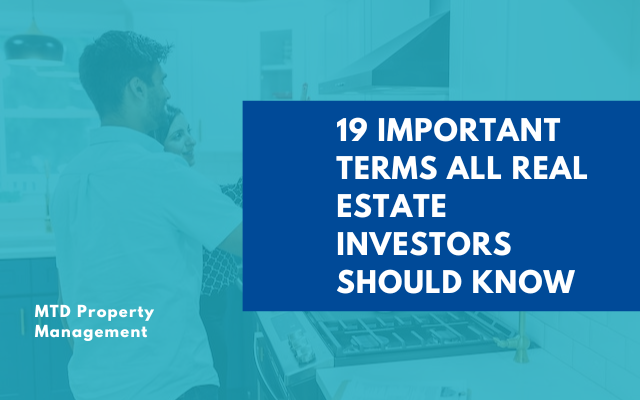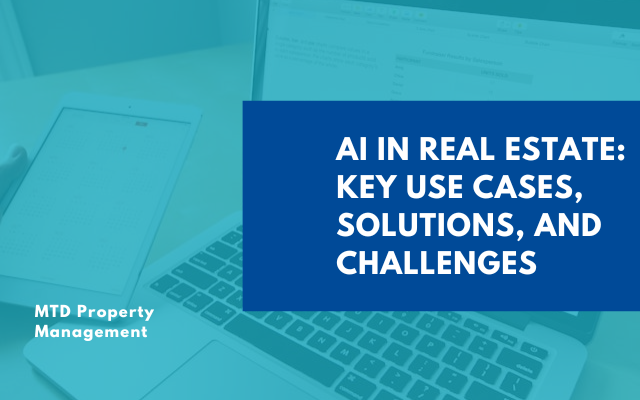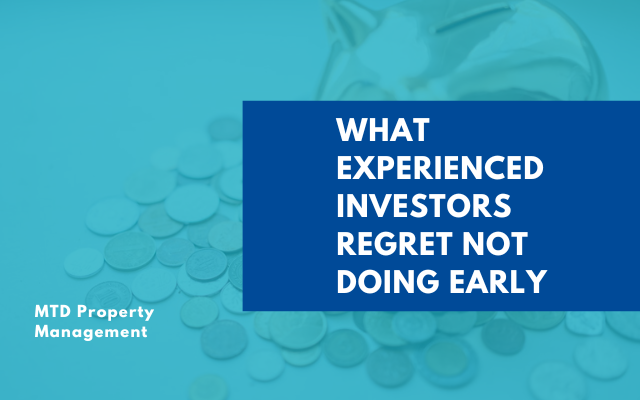
Whether you're a seasoned landlord or just starting out, understanding the real estate industry's key terms is your first step towards successful property management.
This article is your go-to guide for essential real estate terms every investor should know. We've simplified the complex jargon into clear, concise explanations to help you navigate your investments with confidence.
From assessing potential properties to communicating effectively with tenants and professionals, let's unlock the terms that will empower your real estate journey.
Why Learning About Real Estate Terms is Important
Understanding essential real estate terms is crucial for landlords as it lays the foundation for making informed decisions and navigating the complexities of property management.
This knowledge enables clear communication with tenants, agents, and legal professionals, ensuring that all parties are on the same page.
It also enhances a landlord's ability to assess investment opportunities, understand financial obligations, and comply with legal requirements.
Knowing the nuances of things such as lease agreements and tenant rights can prevent potential disputes and foster a positive landlord-tenant relationship.
In essence, a strong grasp of real estate terminology not only boosts your confidence but also contributes to the professional management and success of your investment properties.

19 Essential Real Estate Terms
The following is our straightforward guide on all of the essential real estate terms, empowering you to navigate your landlord journey with confidence and clarity.
- 1% Rule: This simple guideline suggests that the monthly rent of your property should be at least 1% of its purchase price to be deemed a worthwhile investment. It's a quick snapshot to help you assess if the income covers the property's costs, guiding your rental pricing strategy.
- 1031 Exchange: A golden ticket in the tax world, allowing you to postpone capital gains taxes by swapping one investment property for another similar one. It's a strategic move for investors looking to grow their portfolio without the immediate tax bite.
- Absorption Rate: This figure shows the speed at which properties in your market are being snapped up. A quick absorption rate indicates a bustling market favourable for sellers, while a slower rate suggests a buyer's market, where the negotiation room might be wider.
- Accessory Dwelling Unit (ADU): These are bonus spaces on your property, like backyard cottages or basement apartments, offering versatile use from rental income to extra space for guests or family, enhancing property value and utility.
- Accredited Investor: This status is reserved for those who meet certain financial criteria, unlocking the door to investment opportunities not available to the general public. It signifies a level of financial sophistication and capability.

- Adjustable Rate Mortgage (ARM): A mortgage type where the interest rate adjusts over time based on prevailing market rates. This means your monthly payments could fluctuate, offering potential savings when rates fall but also risk when they rise.
- Airbnb Arbitrage: A savvy rental strategy where you lease a property long-term and then sublet it on platforms like Airbnb. It's a way to capitalize on short-term rental demand without owning property, balancing risk and reward.
- Amortization: The gradual reduction of a loan through regular payments over time. Initially, payments are mostly interest, but over time, more of your payment goes towards reducing the principal balance, building your equity.
- Closing Costs: The ensemble of fees and charges due at the closing of a real estate transaction, including but not limited to, appraisal fees, title insurance, and legal fees. These are the final hurdles in the buying or selling process, representing a significant portion of transaction expenses.
- Cap Rate (Capitalization Rate): A crucial metric for evaluating the potential return on an investment property, calculated by dividing the net operating income by the property's value. It gives investors a quick glance at the property's profitability independent of market conditions.
- Cash Flow: The net amount of cash generated from the property each month after deducting all operating expenses and mortgage payments. Positive cash flow indicates your property is generating more income than expenses, crucial for long-term investment sustainability.

- Depreciation: A tax deduction that accounts for the presumed wear and tear on your property over time, offering a way to offset income and reduce tax liability. It recognizes the property's gradual decline in value, even as the market value might appreciate.
- Equity: The portion of your property that you truly own, represented by the difference between the current market value of the property and the outstanding mortgage balance. Equity increases as you pay down your mortgage and as the property value appreciates.
- Fix and Flip: This real estate strategy involves purchasing undervalued properties, making necessary repairs or upgrades, and selling them for a profit. It's a hands-on investment approach that requires a keen eye for potential and the ability to manage renovation projects.
- Leverage: The strategic use of borrowed funds to increase the potential return of an investment. In real estate, this often means using a mortgage to finance a portion of a property's purchase price, amplifying your investment power and potential returns.
- ROI (Return on Investment): A measure of the profitability of an investment, calculated by dividing the net gain from the investment by the original cost. In real estate, a high ROI indicates a successful investment, reflecting efficient management and strategic purchasing.
- Underwriting: The lender's process of assessing the risk of lending money, considering the borrower's creditworthiness, the property's value, and other factors. This critical step determines the terms of the loan, including the interest rate and loan amount.
- Vacancy Rate: A metric indicating the proportion of time a property remains unoccupied over a specified period. A low vacancy rate is indicative of strong demand and efficient management, crucial for maintaining steady rental income.
- Zoning: Local government regulations dictating land use within specific areas, affecting what types of buildings can be constructed and how properties can be used. Understanding zoning laws is vital for ensuring your property complies with local standards and for assessing potential property uses.
Bottom Line
Navigating the world of real estate investing can be a breeze when you have the right knowledge. Understanding these important terms is like having a roadmap to success, guiding you through each decision with clarity and confidence.
However, even the most seasoned investors know when to call in the experts for backup. If you're looking to take your investment to the next level without the added stress, consider partnering with
MTD Property Management.
Our expertise and personalized service can make all the difference, allowing you to focus on what really matters - growing your portfolio and maximizing your returns.









